Abstract
STUDY OBJECTIVE--The aim was to establish the public's perception of the relative importance of various environmental risk factors for cancer. DESIGN--A postal survey was undertaken using a questionnaire to assess the public's knowledge of cancer morbidity and mortality and the role of lifestyle and genetic risk factors. Sociodemographic data were also collected. SETTING--The survey was completed in the state of South Australia. PARTICIPANTS--A random sample of 1500 names were selected from the electoral rolls of the state. These rolls contain the names of all Australian citizens over the age of 18 years. A response rate of 73% was achieved. MEASUREMENTS AND MAIN RESULTS--The results of the survey showed that the knowledge base of the community was generally high, with few differences across sociodemographic groups. The relative importance of cancer as a contributor to mortality was, however, overestimated and the potential for "cure" underestimated. The role of both diet and cigarette smoking in cancer promotion was widely recognised but there was an overemphasis on the importance of pollution of the food supply compared to imbalance of nutrients. Respondents were more able to assign risk in relation to diet using a food based assessment, compared to a nutrient approach. There was wide acceptability that lifestyle change could have a profound effect on the cancer profile of the community. CONCLUSIONS--With the relatively high degree of awareness and acceptance of lifestyle factors as cancer risk determinants, campaigns which involve skill transfer and removal of barriers to change would appear to be the most relevant approach to improvement in community behaviour.
Full text
PDF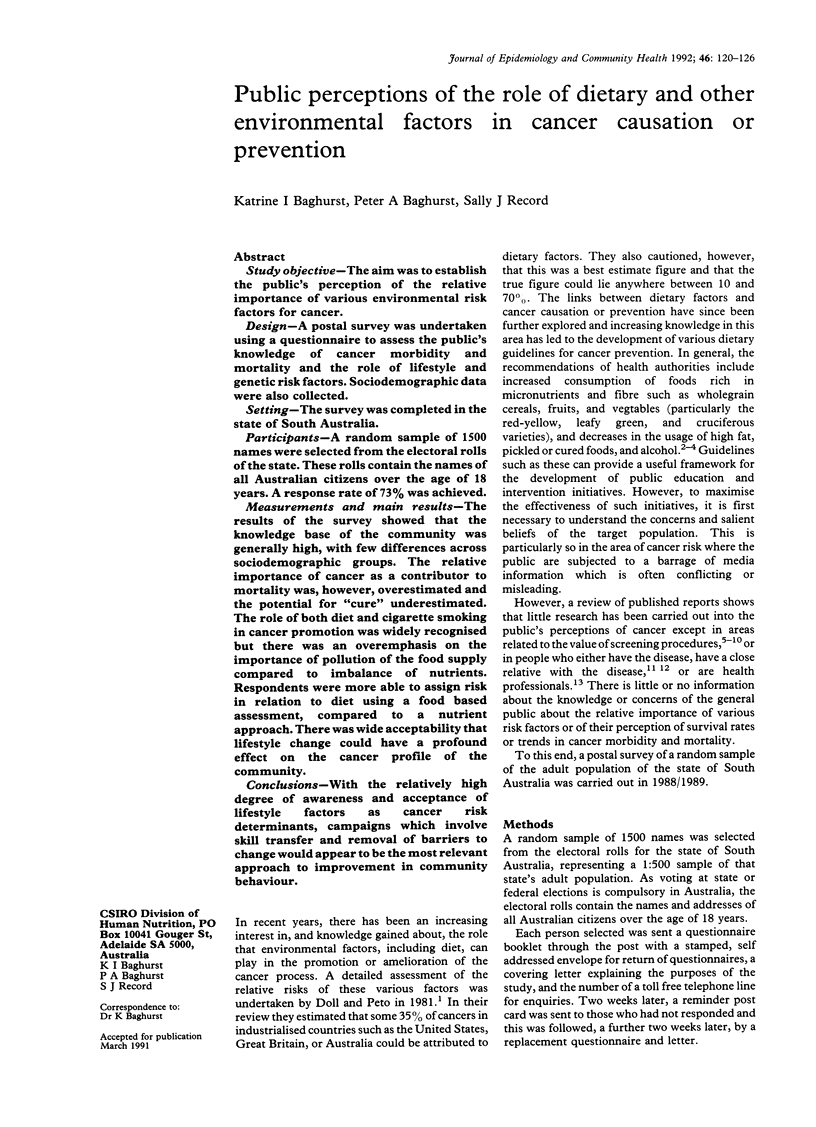
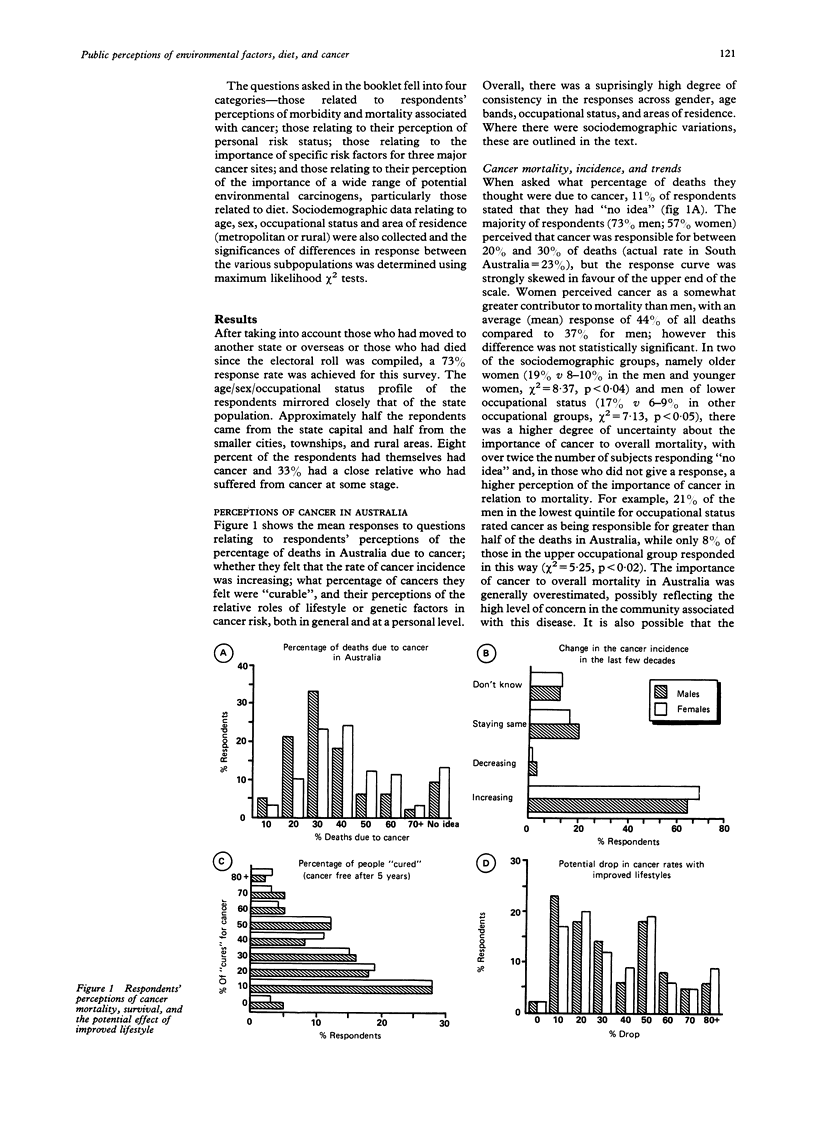
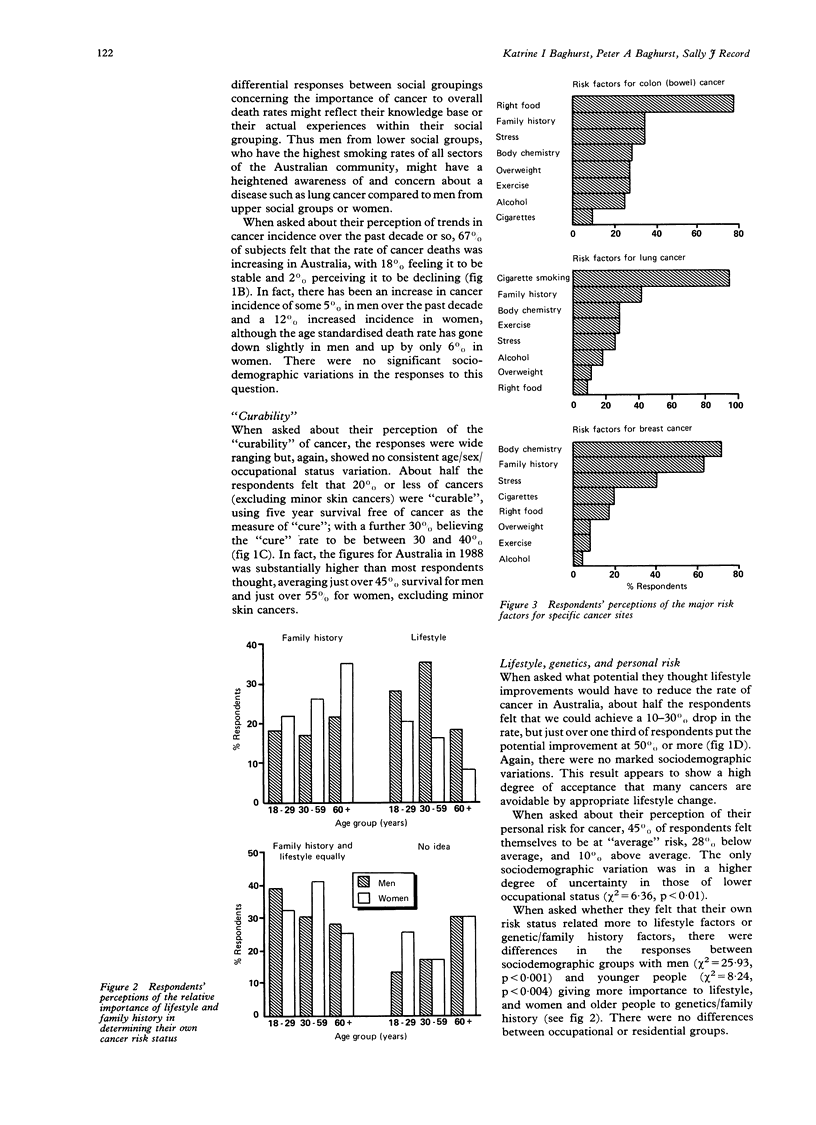
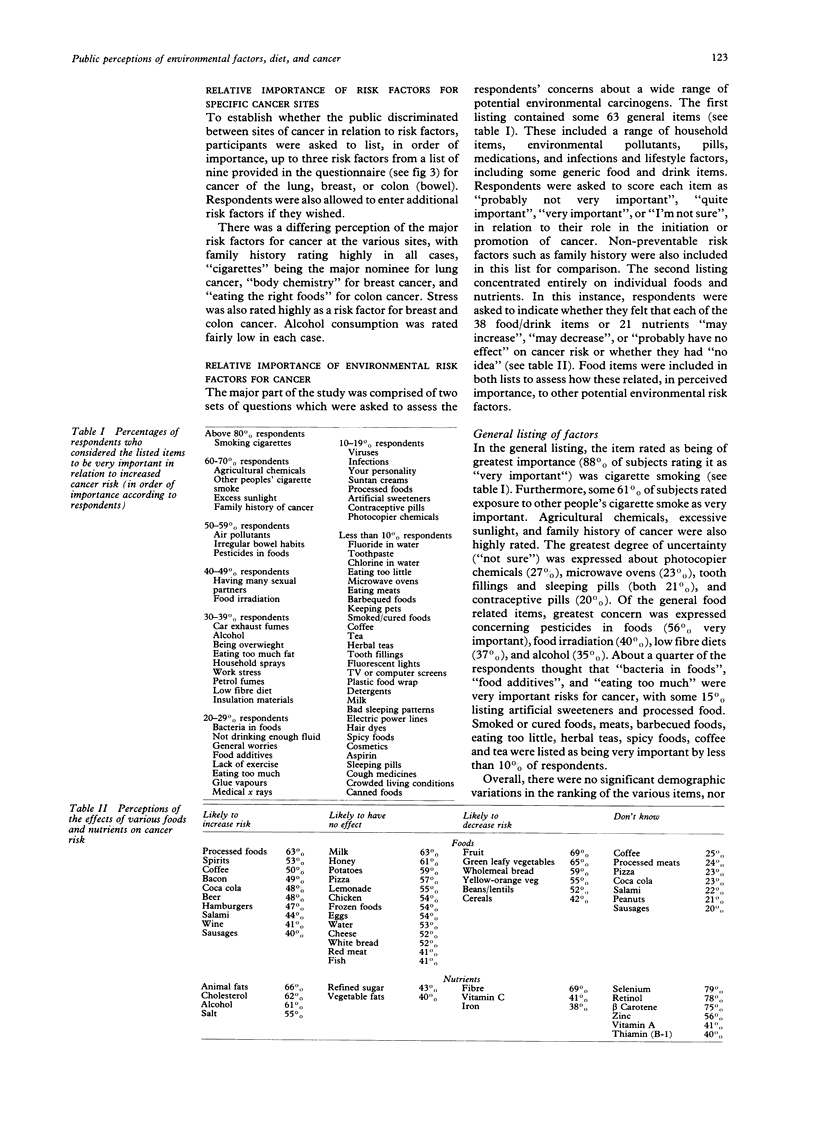
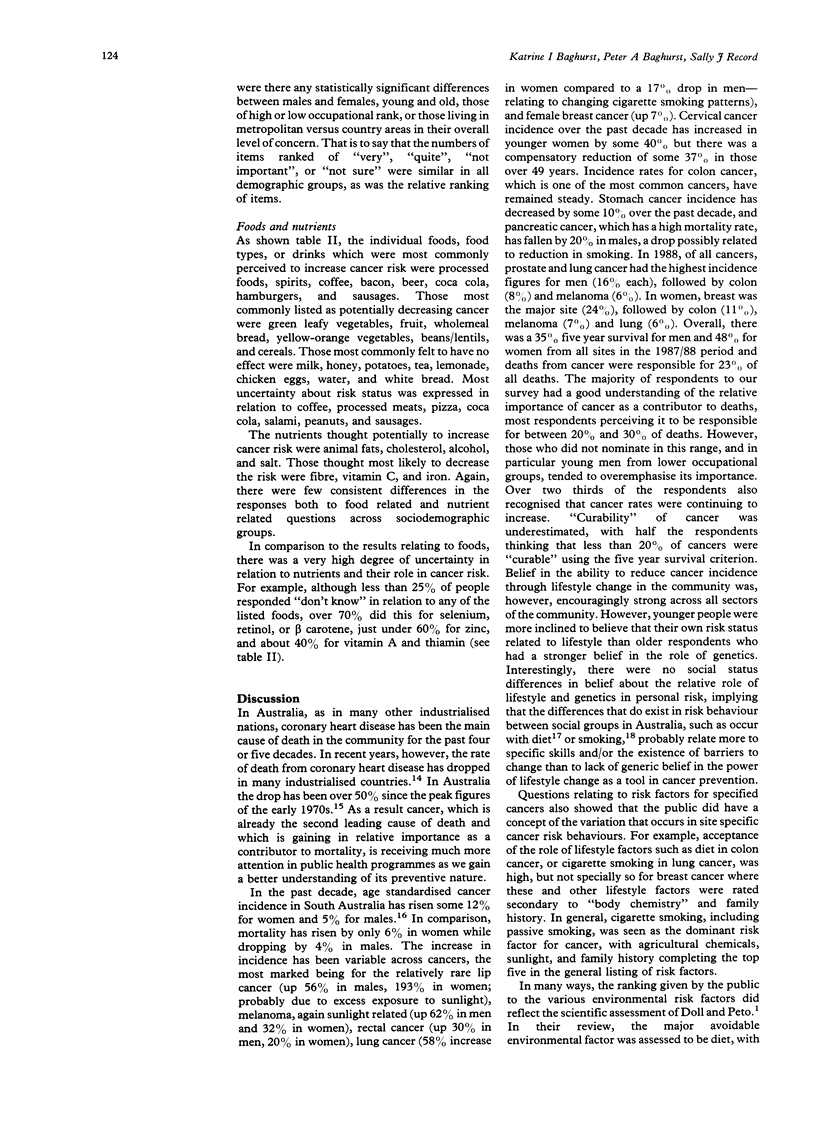
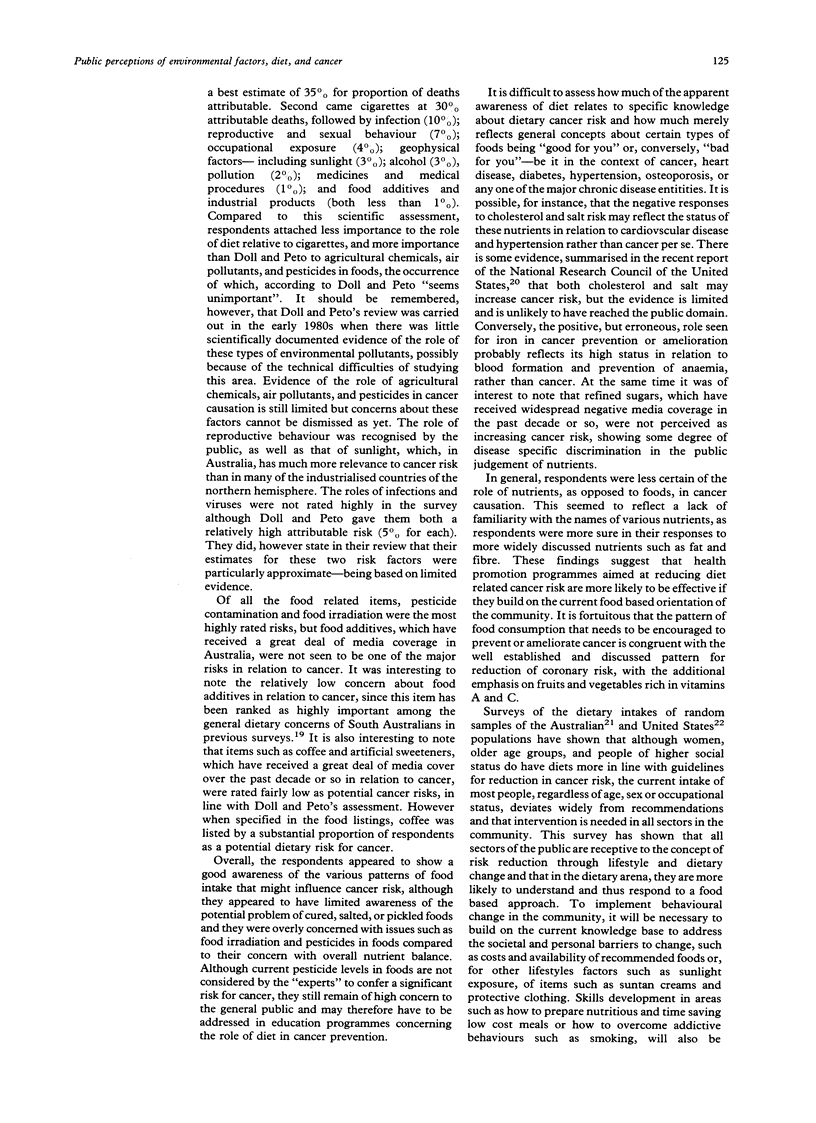
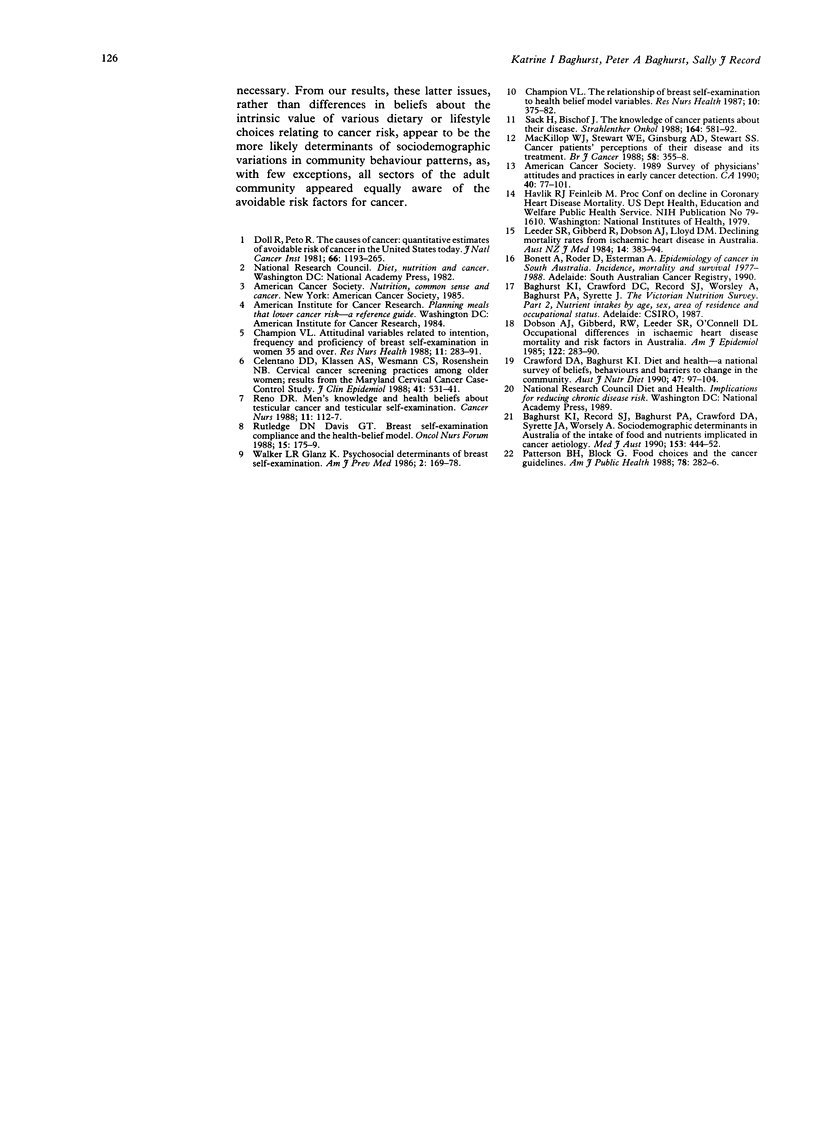
Selected References
These references are in PubMed. This may not be the complete list of references from this article.
- Baghurst K. I., Record S. J., Baghurst P. A., Syrette J. A., Crawford D., Worsley A. Sociodemographic determinants in Australia of the intake of food and nutrients implicated in cancer aetiology. Med J Aust. 1990 Oct 15;153(8):444–452. doi: 10.5694/j.1326-5377.1990.tb126148.x. [DOI] [PubMed] [Google Scholar]
- Celentano D. D., Klassen A. C., Weisman C. S., Rosenshein N. B. Cervical cancer screening practices among older women: results from the Maryland Cervical Cancer Case-Control Study. J Clin Epidemiol. 1988;41(6):531–541. doi: 10.1016/0895-4356(88)90057-1. [DOI] [PubMed] [Google Scholar]
- Champion V. L. Attitudinal variables related to intention, frequency and proficiency of breast self-examination in women 35 and over. Res Nurs Health. 1988 Oct;11(5):283–291. doi: 10.1002/nur.4770110503. [DOI] [PubMed] [Google Scholar]
- Champion V. L. The relationship of breast self-examination to health belief model variables. Res Nurs Health. 1987 Dec;10(6):375–382. doi: 10.1002/nur.4770100605. [DOI] [PubMed] [Google Scholar]
- Dobson A. J., Gibberd R. W., Leeder S. R., O'Connell D. L. Occupational differences in ischemic heart disease mortality and risk factors in Australia. Am J Epidemiol. 1985 Aug;122(2):283–290. doi: 10.1093/oxfordjournals.aje.a114100. [DOI] [PubMed] [Google Scholar]
- Mackillop W. J., Stewart W. E., Ginsburg A. D., Stewart S. S. Cancer patients' perceptions of their disease and its treatment. Br J Cancer. 1988 Sep;58(3):355–358. doi: 10.1038/bjc.1988.218. [DOI] [PMC free article] [PubMed] [Google Scholar]
- Patterson B. H., Block G. Food choices and the cancer guidelines. Am J Public Health. 1988 Mar;78(3):282–286. doi: 10.2105/ajph.78.3.282. [DOI] [PMC free article] [PubMed] [Google Scholar]
- Reno D. R. Men's knowledge and health beliefs about testicular cancer and testicular self-examination. Cancer Nurs. 1988 Apr;11(2):112–117. [PubMed] [Google Scholar]
- Rutledge D. N., Davis G. T. Breast self-examination compliance and the health belief model. Oncol Nurs Forum. 1988 Mar-Apr;15(2):175–179. [PubMed] [Google Scholar]
- Sack H., Bischof J. Der Wissensstand von Krebspatienten über ihre Erkrankung. Strahlenther Onkol. 1988 Oct;164(10):581–592. [PubMed] [Google Scholar]
- Walker L. R., Glanz K. Psychosocial determinants of breast self-examination. Am J Prev Med. 1986 May-Jun;2(3):169–178. [PubMed] [Google Scholar]


